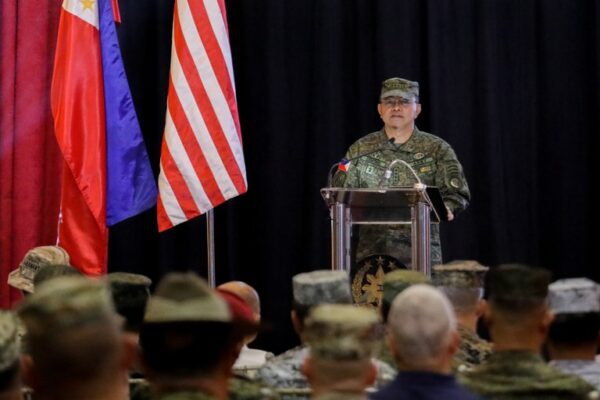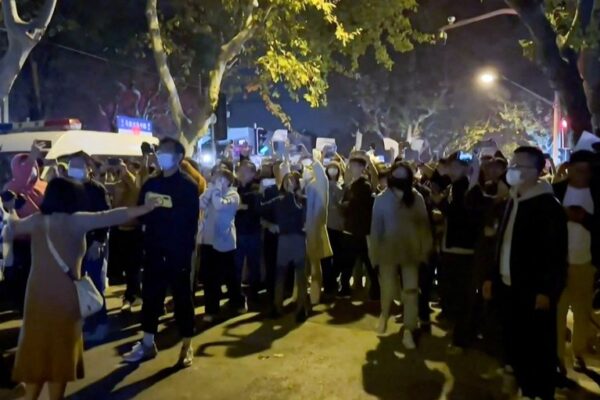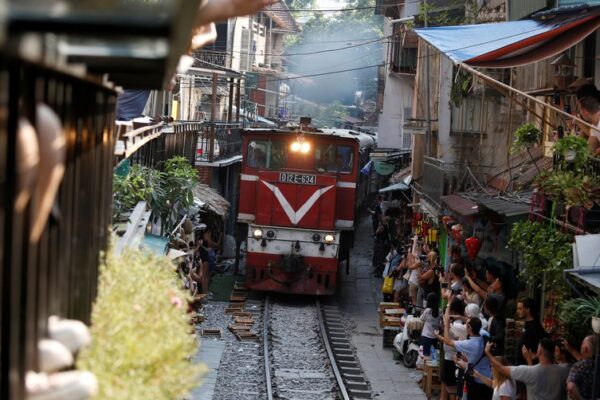
Philippines, US launch largest-ever joint war games
Treaty allies the United States and the Philippines kicked off their biggest-ever annual joint military exercises on Tuesday, amid growing regional tensions between the U.S. and China over Taiwan and anti-American protests by Filipinos. The Balikatan Exercise 2023 brings together 17,680 troops – an estimated 12,000 Americans, 5,000 Filipinos, and more than a hundred Australians – who will participate in live-fire drills and other activities until April 28. The drills aim to boost bilateral readiness for cyber-defense operations and maritime security, officials said. “Balikatan,” which means “shoulder to shoulder” in Tagalog, got underway a day after Philippine President Ferdinand Marcos Jr. sought to allay public fears that a beefed up American military presence here would unnecessarily draw the Southeast Asian country into a conflict in case China attacked Taiwan. Gen. Andres Centino, the Philippine military’s chief of staff, said the drills would not only bolster bilateral ties but “contribute to peace and stability in the Indo-Pacific region in a definitive manner.” Among the drills on the program are a command post exercise, cyber-defense exercise, field training exercise, and humanitarian civic assistance activities. “All these major events are intended to ensure the achievement of the end state of our Balikatan 2023 exercises, which is to fully develop mutual defense capabilities to enhance cyber defense operation and strengthen the country’s maritime security and domain awareness,” Centino said in a speech Tuesday inaugurating the drills. A bilateral command post exercise aims to strengthen the allies’ ability to plan, coordinate, and provide command-and-control of forces against a range of scenarios and simulated challenges. It also trains both militaries to refine tactics and procedures related to maritime security. And during this year’s Balikatan, participants for the first time will carry out a live-fire training with Patriot missiles and Avenger air-defense systems, which Ukraine has used against invading Russian forces. During the live-fire exercise at sea, Filipino and American troops will target and sink a 200-foot-long mock enemy vessel in the waters off Zambales province facing the West Philippine Sea, the part of the South China Sea that lies within Manila’s exclusive economic zone. Beijing and Manila, as well as other Southeast Asian countries and Taiwan, have overlapping claims in the strategic waterway. Another new component of the war games is cyber defense. “The cyber domain is very important because a lot of our subsystems in command-and-control, and intelligence all rely on the cyber domain,” said Col. Mike Logico, a Filipino officer and spokesman for Balikatan 2023. Heather Variava, the chargé d’affaires at the U.S. Embassy in Manila, said Balikatan symbolized “the marquee annual event” for the two countries’ alliance. “The U.S. and Philippines share a vision of a free and open Indo-Pacific that is more connected, prosperous, secure and resilient,” Variava said in her speech at the opening ceremony at Camp Aguinaldo, the Philippine military’s headquarters in Quezon City, Metro Manila. Gen. Andres Centino, chief of the Armed Forces of the Philippines, speaks during the opening ceremony of the annual “Balikatan” exercises, at Camp Aguinaldo in Quezon City, Philippines, April 11, 2023. Credit: Basilio Sepe/BenarNews On Monday, President Marcos tried to calm jitters and criticism among Filipinos about his administration’s decision in February to grant U.S. forces access to four more Philippine bases under an expanded defense pact, as tensions build between China and Taiwan, which Beijing considers a renegade province. He said the bases would not be used for carrying out military attacks. Last week, his government revealed the names and sites of the four bases. Three of these are located on the main and northernmost Philippine island of Luzon, including two sites that face Taiwan. A fourth site, in Palawan province, faces the South China Sea where territorial tensions between China and the Philippine have been high in recent years. Marcos on Monday insisted that the Americans would use the newly selected locations to pre position equipment that they could readily access in times of natural disasters. “Now, the reaction of China is not really surprising because they worry too much. But … the Philippines will not allow the bases to be used in offensive action. The bases are only to help the Philippines if the country needs help,” Marcos told reporters on the sidelines of an event honoring Filipino war veterans. “What we are doing is strengthening our defenses of our territories in defense of the republic,” Marcos said. This largest iteration of the Balikatan drills began a day after the Chinese military concluded three days of maneuvers and war games around Taiwan, including simulated precision strikes. China launched the drills as a response to Taiwanese President Tsai Ing-wen’s visit to the United States early this month, where she met with U.S. House Speaker Kevin McCarthy. The unprecedented meeting on U.S. soil further angered China, which also expressed its displeasure over the Marcos administration’s move to grant the U.S. access to other bases in the Philippines. “The U.S. military has been coming all the way from the other side of the Pacific to stir up trouble in the South China Sea and ganging up with its allies from other parts of the world to flex muscle,” the Chinese Embassy in Manila said earlier in a statement. The U.S. has heightened tensions, driven a wedge between China and the Philippines, as well as “upset the joint effort of countries in this region to safeguard peace and stability in the South China Sea,” it alleged. Opposition to war games Meanwhile on Tuesday, Philippine activist groups held protests outside Camp Aguinaldo and the U.S. Embassy in Manila to express their opposition to the joint military drills in different parts of the country and the expanded access for U.S. forces at local bases. “The Philippines is ours. U.S. get out of our country!” some protesters chanted outside the military’s headquarters in Quezon City. In a separate statement, the anti-U.S. International League of Peoples’ Struggle (ILPS) said the Balikatan exercises were “nothing but a blatant display of U.S. imperialism’s military intervention and aggression in the country…







